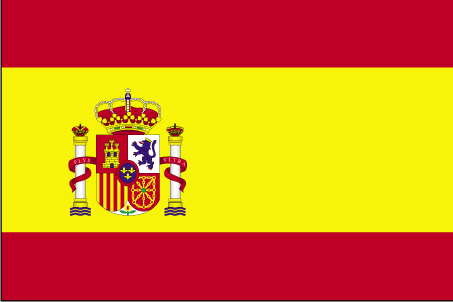Joaquin Ruiz-Giménez, a leading Spanish jurist active in protecting the rights of children and victims of political persecution, was elected President Thursday of the ICJ.
The ICJ, a non-governmental organization that unites judges and lawyers to defend human rights, also chose four Vice Presidents and seven Executive Committee members at its triennial meeting in Geneva, which concluded Thursday.
The meeting focused on future ICJ priorities — among them offering more technical assistance to developing countries and new democracies, and denouncing human rights violations.
Although many speakers at the opening ceremony, on 21 January at the United Nations, touched on recent democratic advances around the world, they underlined the need for new attitudes and new outreach from the veteran democracies.
“Just as we must strongly reject the idea that certain peoples are not yet mature enough for democracy, we must also recognize that misery and despair open the way to deception,” said Bernard Ziegler, President of the State Council of Geneva. “If the advanced economic nations who are legitimately proud of their democratic institutions really desire universal rights, they contribute less by giving lessons to poorer states than they would by accepting the establishment of a more just global economic order.”
Michael van Walt, General Secretary of the Unrepresented Nations and Peoples Organization, said: “The principles of self-determination, legitimacy of governments and voluntary association should form the basis of future development of international law and international relations. For jurists and human rights advocates it is not sufficient to address only violations of individual human rights. It is necessary to address the root cause of the problems as well. for often the violations of individual human rights are symptoms of a deeper issue.”
ICJ Secretary-General Adama Dieng commented: “We are witnesses today to a profusion of appeals for social democratization and for popular participation in the development process as well as the growing insistence on the powerful link between democracy and development.”
Jean-Bertrand Aristide, the President of Haiti whose democratically elected government was ousted in a coup last September, was scheduled to be the keynote speaker at the opening ceremony but current negotiations prevented his appearance. Instead he sent a message and his speech was delivered by Haiti’s Ambassador to Canada, Emmanuel Ambroise.
Liviu Bota, chef de cabinet, gave the address for Jan Martenson, Director-General of the United Nations Office in Geneva.
Mr. Ruiz-Giménez, a professor of legal philosophy, is President of the Spanish Committee of UNICEF. He was Ombudsman of the Spanish Parliament from 1982 to 1986 and earlier served as Minister of Education. He has been a member of the ICJ since 1979 and a Vice President since 1986.
The four Vice Presidents are Tai-Young Lee, Director of the Korean Legal Aid Centre for Family Relations; Enoch Dumbutshena, former Chief Justice of Zimbabwe; Supreme Court Judge Claire L’Heureux-Dube of Canada and Appeal Court Judge Lennart Groll of Sweden.
The Chairman of the Executive Committee is Judge Michael D. Kirby of Australia. Members are Professor Dalmo de Abreu Dallari of Brazil, lawyer Desmond Fernando of Sri Lanka, lawyer Asma A. Khader of Jordan, Professor Kofi Kumado of Ghana, Professor Christian Tomuschat of Germany and lawyer Fali S. Nariman of India.
Prior to the meeting, Ms. Khader and three other human rights activists were appointed to the Commission, which currently consists of 31 jurists. They are Theo C. van Boven of the Netherlands, Diego García-Sayán of Peru and Bertrand G. Ramcharan of Guyana.
Mr. van Boven is Dean of the Faculty of Law at the University of Limburg as well as Chairman of the Advisory Council for the Dutch Section of the ICJ. Mr. García-Sayán, Executive Director of the Andean Commission of Jurists, is a member of the UN Working Group on Enforced or Involuntary Disappearances. Ms. Khader founded the Arab Human Rights Centre and served on the royal committee that created Jordan’s new National Charter last year. And Mr. Ramcharan is Chief of the UN Secretary-General’s Drafting Service and adjunct professor at Columbia University’s School of International Affairs in New York.




